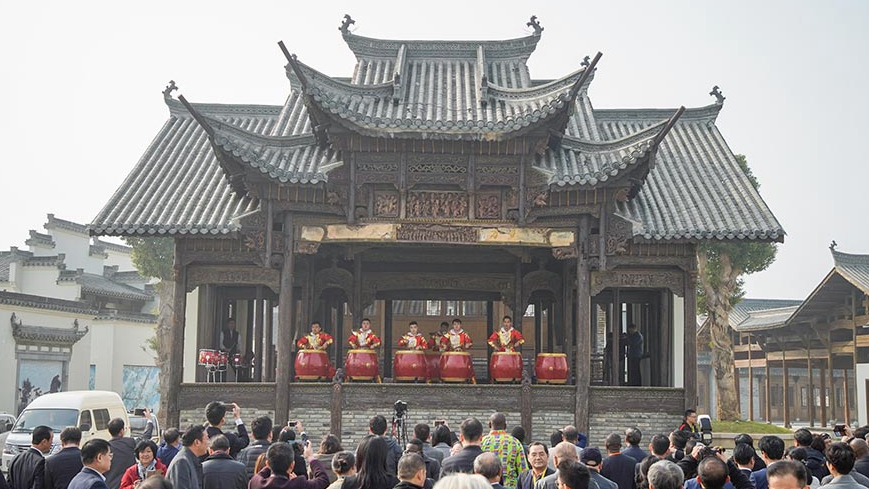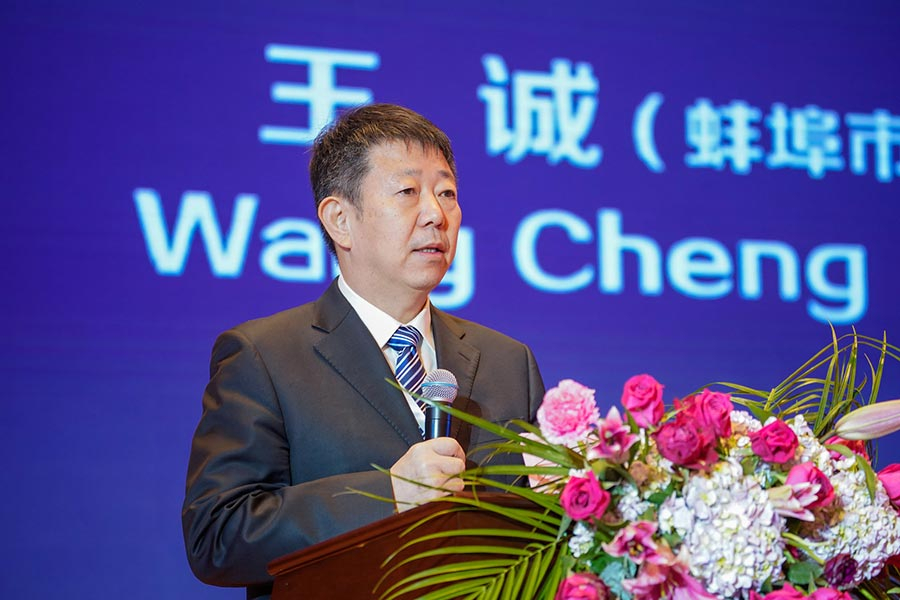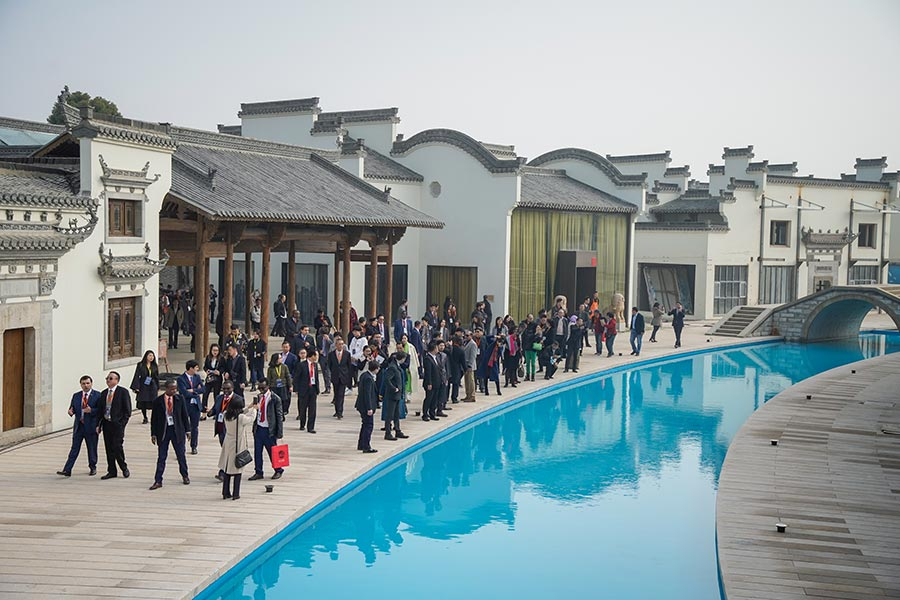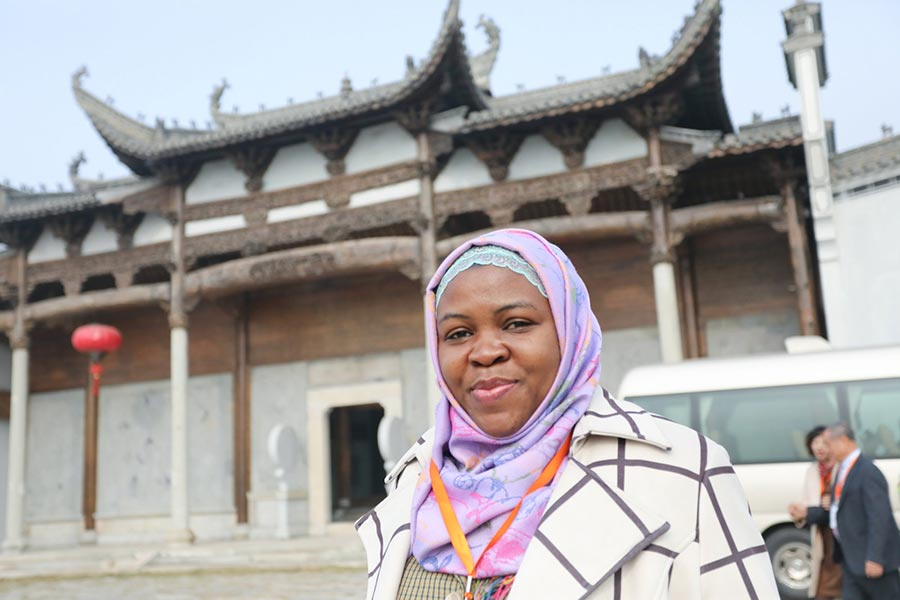
Travel
10:16, 08-Dec-2018
Pearl City Bengbu ready to embrace the world
Updated
09:25, 11-Dec-2018
CGTN

The China International Musical Instruments Expo and the second Belt and Road Commercial and Cultural Exchange Forum took place in Bengbu City, East China's Anhui Province, from Dec.1 to 2.
Over 50 ambassadors and envoys from more than 30 countries, together with directors and representatives from over 30 business associations both at home and abroad, participated in the forum.
"As the host city, Bengbu is pleased to welcome all guests both at home and abroad. As a historic city with profound culture, Bengbu is ready to embrace the world," said its mayor Wang Cheng.

Bengbu Mayor Wang Cheng speaks at the China International Musical Instruments Expo and the second Belt and Road Commercial and Cultural Exchange Forum. /China Daily Photo
Bengbu Mayor Wang Cheng speaks at the China International Musical Instruments Expo and the second Belt and Road Commercial and Cultural Exchange Forum. /China Daily Photo
This is not the first time that Bengbu has hosted such a large-scale event. In 2018, it has successfully held the G-Expo World Football Summit, the opening ceremony for the Jackie Chan Ancient Dwellings Rehabilitation Zone, and the Chinese Bengbu Poetry Tour.

Visitors attend the China International Musical Instruments Expo and the second Belt and Road Commercial and Cultural Exchange Forum. /China Daily Photo
Visitors attend the China International Musical Instruments Expo and the second Belt and Road Commercial and Cultural Exchange Forum. /China Daily Photo
Known in ancient times as the Pearl City for its abundant freshwater pearl fisheries, Bengbu enjoys rich historical and cultural resources as well as bright prospects for protection and development.
According to an old saying, "In Anhui Province, you can know Ming and Qing Dynasty culture by traveling to Huizhou, and know the culture before the Han Dynasty by traveling to Bengbu."
As early as 4,000 years ago, Da Yu, the water control hero from the Xia Dynasty (c.21st century-16th century BC), once convened a meeting in Bengbu and started the campaign to combat flooding by splitting the mountain to guide floodwaters into the Huaihe River in the western suburbs of Bengbu.

A female guest smiles to the camera during the China International Musical Instruments Expo and the second Belt and Road Commercial and Cultural Exchange Forum. /China Daily Photo
A female guest smiles to the camera during the China International Musical Instruments Expo and the second Belt and Road Commercial and Cultural Exchange Forum. /China Daily Photo
The area gave rise to one of the origins of ancient Chinese characters – the Shangdun Neolithic Age Relics, which date back 7,000 years and stands out as a prominent example of the Huaihe River culture.
Today, the city has received national recognition for its achievements, including as an innovation demonstration zone. It also enjoys advantages in traffic and transportation.
Bengbu serves as an important hub on China's north-south Beijing-Shanghai Railway, with the capacity to handle 320 trains daily as well as a high-speed train station that connects passengers to major cities, including provincial capitals and municipalities. Bengbu operates the largest port on the Huaihe River, linking the Yangtze River and the sea, and will become a connecting point between the Beijing-Fuzhou and Nanjing-Luoyang highways.
(Cover: Visitors watch the show during the China International Musical Instruments Expo and the second Belt and Road Commercial and Cultural Exchange Forum held between Dec.1 and 2. /China Daily Photo)
Source(s): China Daily

SITEMAP
Copyright © 2018 CGTN. Beijing ICP prepared NO.16065310-3
Copyright © 2018 CGTN. Beijing ICP prepared NO.16065310-3